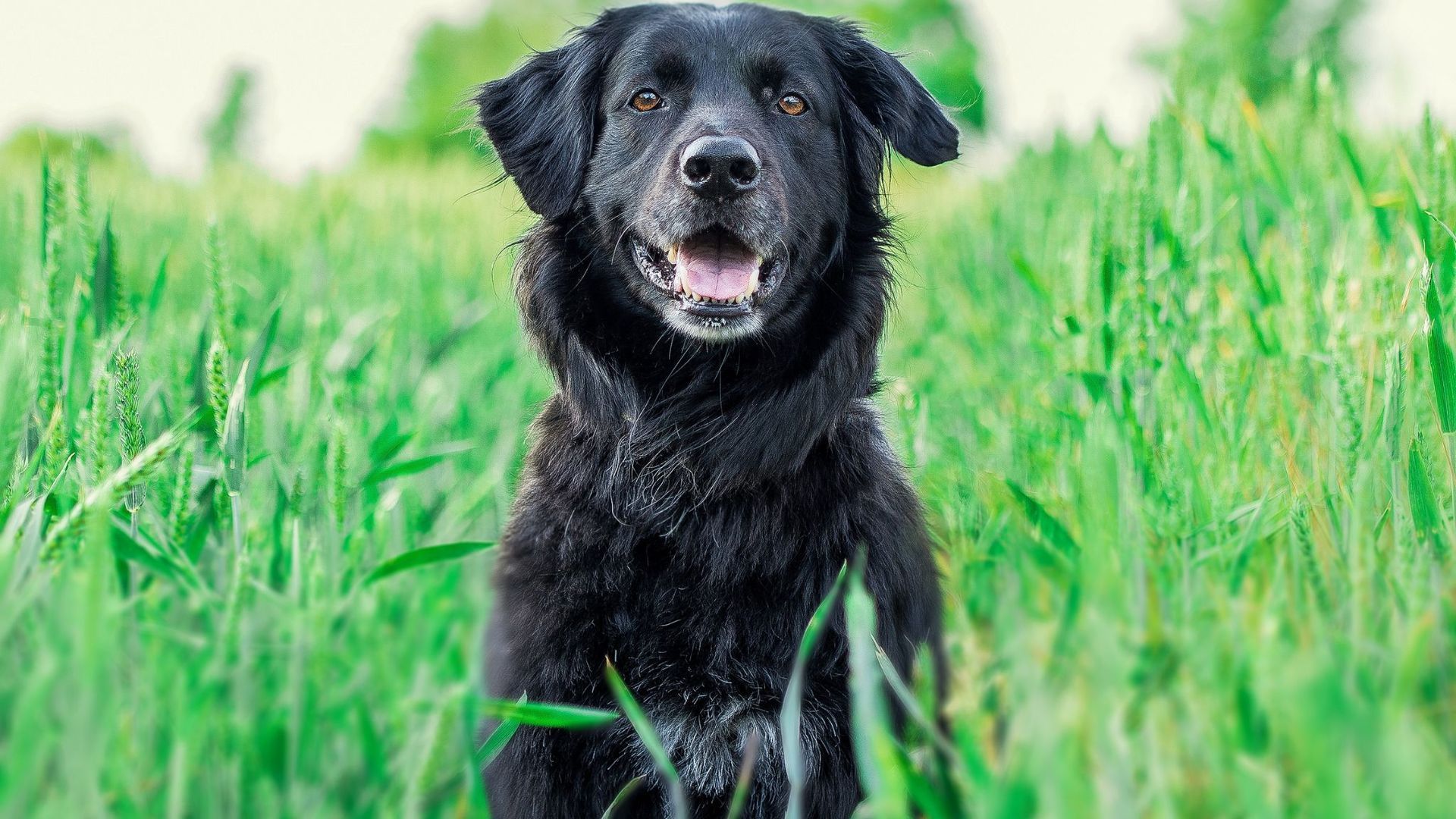
Blood in your dog’s stool can signal anything from minor digestive irritation to serious health concerns. This situation often leaves owners wondering if their pet ate something harmful, contracted an infection, or developed an internal issue. Early action is essential to pinpoint the cause and provide appropriate care.
In this blog, we’ll cover the most common reasons for bloody stools and offer guidance on the steps you can take to address the problem, ensuring your dog stays safe and healthy.
Why Is My Dog Pooping Blood?
A dog’s digestive system relies on multiple organs working in sync to process food, absorb nutrients, and eliminate waste. When blood appears in your dog’s stool, it can indicate a disruption in this process, possibly signaling internal damage. This issue could stem from something minor, like dietary upset or more severe conditions such as poisoning, parvovirus, or cancer.
Prompt veterinary care is crucial to diagnose the cause accurately and ensure your dog receives the right treatment without delay.
9 Common Causes of Blood Stool in Dogs
Seeing blood in your dog’s stool can be concerning, especially when the cause isn’t clear. It may result from various factors, ranging from dietary issues to more serious medical conditions. Below are some common causes to help you identify potential triggers:
Harmful Food
Blood in your dog’s stool may result from consuming harmful substances that irritate the gastrointestinal tract. Spoiled food, contaminated items, or anything upsetting to the digestive system can trigger inflammation, leading to blood in the stool. Non-food items, such as toys, bones, sticks, or garbage, also pose risks. Additionally, common foods toxic to dogs include chocolate, grapes, onions, garlic, caffeine, alcohol, and dairy products. Both non-food and food-related ingestion can cause significant irritation, making it crucial to monitor your pet’s diet closely.
Intestinal parasites
Several types of parasites that live in the intestine also cause damage to the digestive tract. Hookworms, whipworms, coccidia, and giardia are the most common intestinal parasites that induce inflammation and irritation to the gastrointestinal lining, leading to bloody stool.
Impaction of Anal Sac
Anal sacs are two small pouches beside the anus that contain fluid chemicals that act as territorial markers or “dog calling cards.” The fluids are usually squeezed out whenever the dog passes a bowel, thus providing a distinctive odor to their stool.
Anal sacs frequently become plugged usually due to inflammations of the ducts. The fluid within the impacted sacs will thicken and will eventually swell if not secreted, making it painful for your dog to pass a bowel.
Gastrointestinal Inflammation
Gastrointestinal inflammation is another possible reason for your dog pooping blood. It is a condition where the digestive tract of your dog becomes inflamed frequently. Blood in their stool that appears bright red could indicate that your dog has bleeding in his lower digestive tract. Black or tarry dog poop, on the other hand, is a cause of digested blood from the upper digestive tract such as the small intestine.
Intussusception (Folding of the Intestines)
Intussusception happens when one part of the intestine slides (like how telescopes fold) into another part. This irregularity is caused by many underlying conditions such as intestinal parasites, foreign bodies, viral intestinal infections, inflammatory bowel disease, and cancer.
Dogs that develop folding of the intestines will usually suffer from episodes of diarrhea or vomiting before it occurs. Intussusception often manifests symptoms such as bloody diarrhea, abdominal pain, or a palpable abdominal mass.
Ingested Toxic Substances
Toxic substances that your dog ingests, such as particular plants, medications, or chemicals, can irritate the lining of the gastrointestinal tract. These irritations often lead to inflammation, causing the tissues to become swollen and bleed. Poisonous chemicals, such as rat poison, damage the dog’s blood clotting system, leading to gastrointestinal bleeding.
Trauma or Injuries
Trauma or injuries obtained from being hit, kicked, or falling can disrupt the dog’s digestive system and cause gastrointestinal bleeding. Seeking veterinarian advice is crucial to assess the scale of the injury and receive the necessary care.
Virus and Bacterial Infections
Viral and bacterial infections, such as parvovirus, can also inflict damage to the intestinal lining resulting in a dog’s bloody poop. These bacterial infections can lead to bloody diarrhea due to the irritation, inflammation, and bleeding they cause within the lining of the gastrointestinal tract.
Tumors
The abnormal tissue development can happen anywhere in the body, and the gastrointestinal tract is not absolved from this danger. If your pet develops a tumor in the small intestine, they may show symptoms of vomiting, reduced appetite, lethargy, and gradual weight loss. Tumor bleeding within the small intestine may cause the stool to become blackish. On the other hand, if your pet has a tumor in the large intestine, symptoms such as bleeding from the anus, blood in the stool, and the difficulty of passing bowel may be shown.
What if Your Dog Is Pooping Blood and Vomiting?
Vomiting and the appearance of blood in your dog’s poop is an indication that there is damage inside his gastrointestinal tract. If your dog's poop is tarry or blackish in color, it is an indication that there is bleeding in his upper digestive tract. On the other hand, the bright red color of blood indicates a problem along his lower digestive tract. If the vomiting happens along with these signs, it only means that your dog’s digestive system is damaged and you should
seek immediate veterinary attention.
What Home Remedies Are Good for Blood in Dog Stool?
Using home remedies without veterinary guidance is not recommended if you notice blood in your dog’s stool. The first step should always be
consulting a veterinarian to assess the underlying cause. Even if your dog seems normal otherwise, blood in the stool could indicate a serious issue that requires professional treatment. Quick action ensures your pet receives the care needed to address potential infections, injuries, or digestive problems effectively.
When to Consult the Vet?
If you notice that your dog is pooping blood, it is usually time to contact a veterinarian. Call the vet immediately if you notice that your dog is showing these additional signs:
- Signs of discomfort and pain
- Bloody stool is still present for more than a day
- Additional symptoms like vomiting, lethargy, appetite loss, or abdominal pain
- Blood in the stool of puppies or senior dogs, as they are more vulnerable
- Suspected ingestion of something toxic
While the blood in a dog's stool can sometimes indicate something serious, there are many milder causes that a vet can treat if noticed early. Any details that may help in narrowing down the cause of the bloody poop can be prepared and shown to the veterinarian. Describing your dog’s poop or bringing a sample to your vet will aid in diagnosing the problem.
Conclusion
While blood in your dog’s stool can sometimes indicate a minor issue, it’s crucial to monitor symptoms closely and act quickly. Early veterinary care makes all the difference in identifying the cause and ensuring your dog receives the best possible treatment. At
Brewerton Hospital for Animals, we’re here to provide expert care when you need it most.
Book an appointment today to help your dog regain health and happiness.
SHARE THIS ARTICLE




